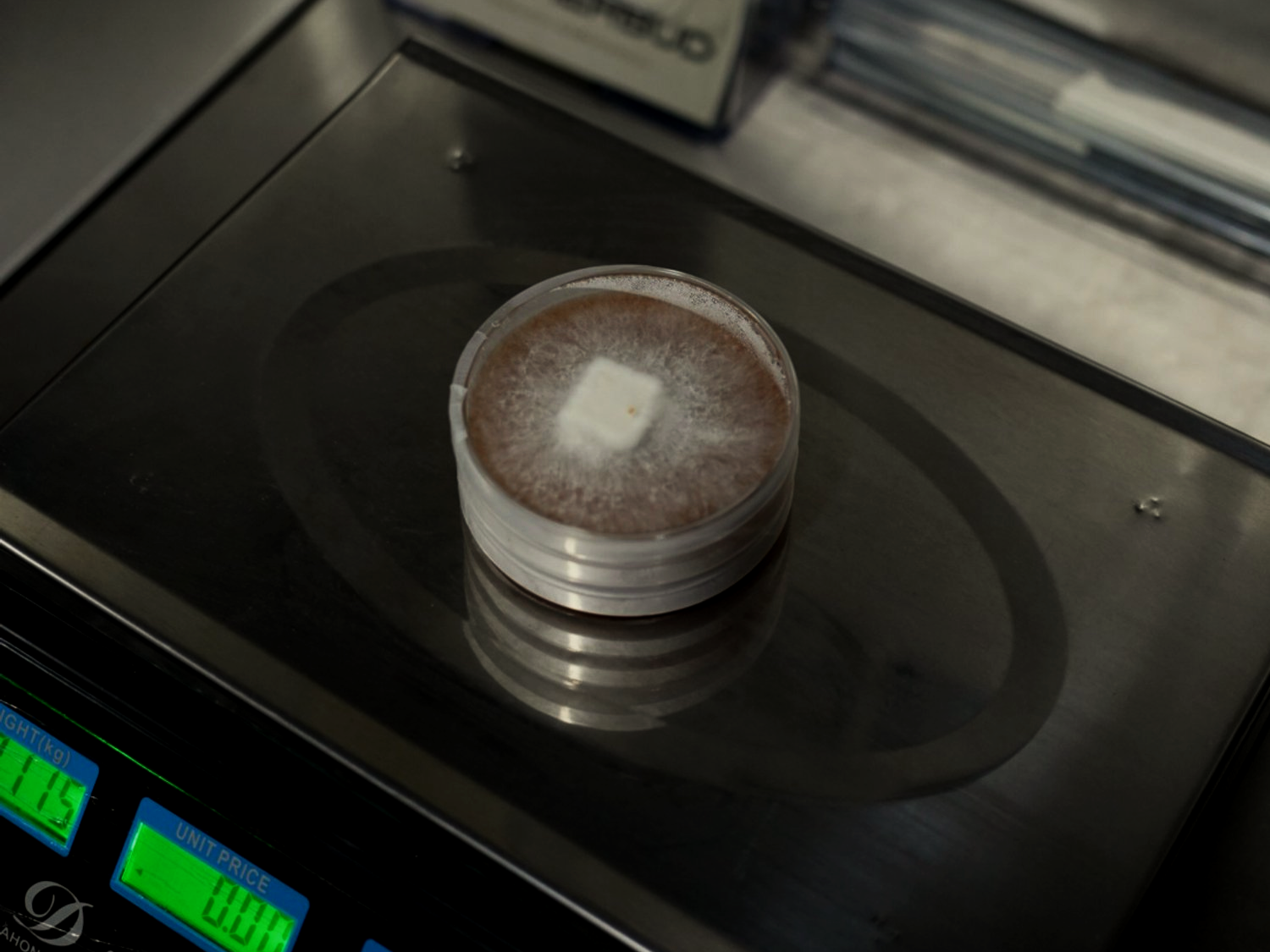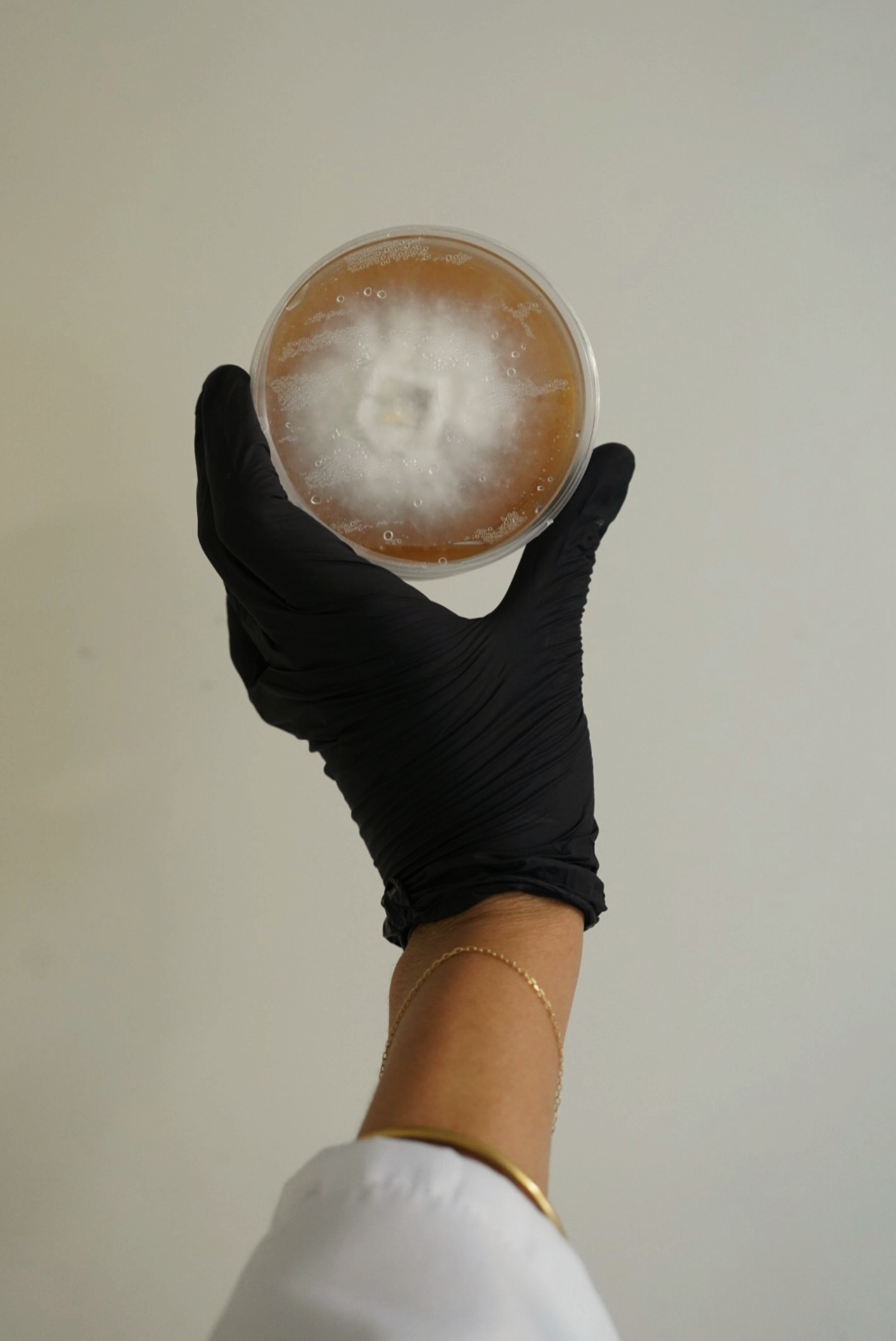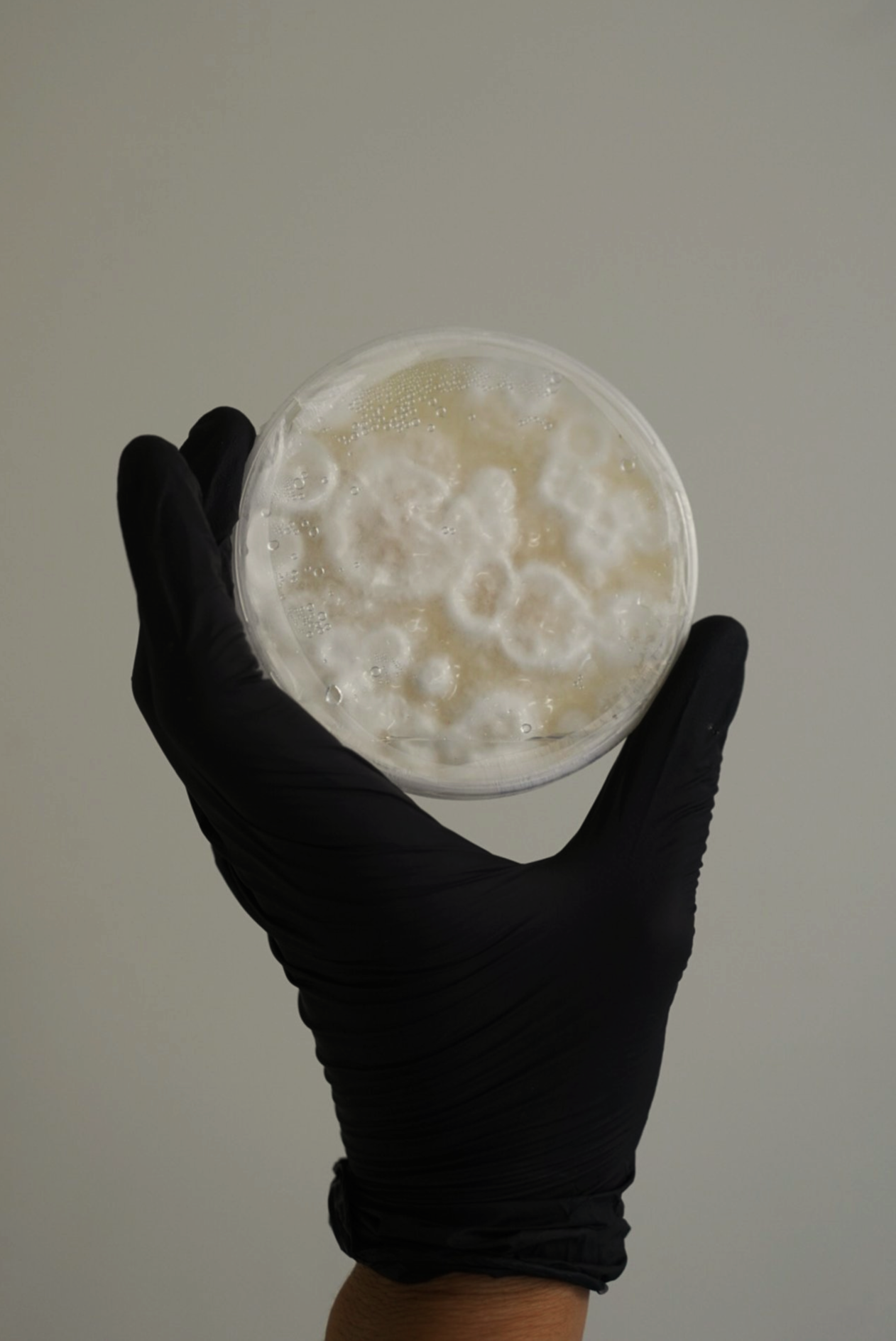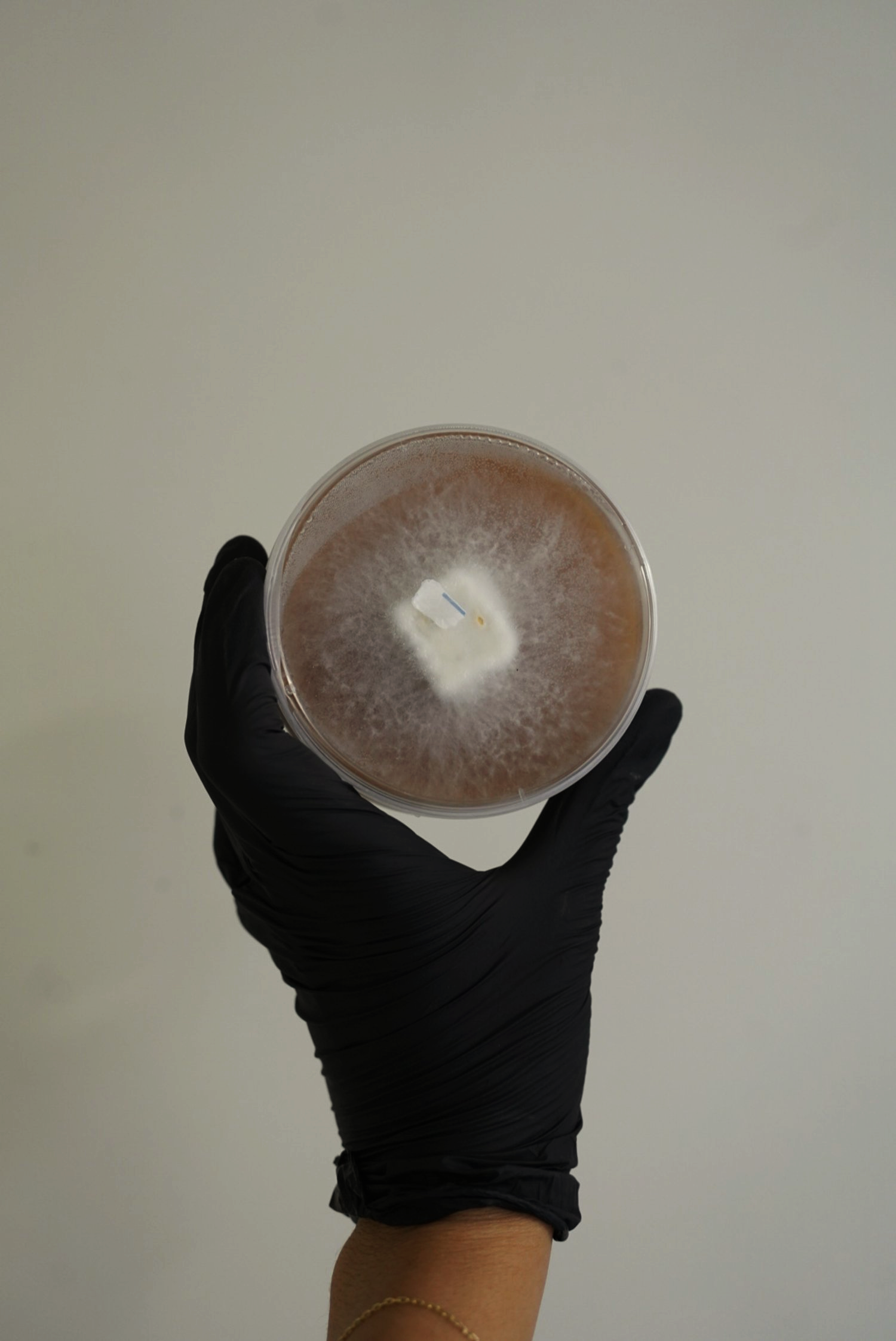 Image 1 of 4
Image 1 of 4

 Image 2 of 4
Image 2 of 4

 Image 3 of 4
Image 3 of 4

 Image 4 of 4
Image 4 of 4





Agar Plate Culture
MotherBud’s mycelium cultures are propagated on sterile nutrient-rich agar plates under controlled lab conditions, ensuring high vigor, low contamination risk, and optimal colonization speed. Ideal for commercial spawn production, research, or small-scale cultivation.
Each plate is sealed and labeled with strain name and inoculation date.
Available Strains:
Blue Oyster (Pleurotus ostreatus var. columbinus)
A fast-growing, cold-tolerant strain with striking blue caps and delicate umami flavor. Preferred for beginner cultivators and high-yield systems.King Oyster (Pleurotus eryngii)
Known for thick, meaty stems and slow, dense colonization. Ideal for gourmet applications and mycoprotein experimentation.Lion’s Mane (Hericium erinaceus)
A prized functional species with neurotrophic benefits. Requires stable humidity but rewards with cascading white fruiting bodies rich in beta-glucans and hericenones.Pink Oyster (Pleurotus djamor)
Tropical, fast-colonizing, and visually stunning with coral pink caps. Best suited for warm environments. Mild seafood flavor, popular in stir-fries and curries.Brown Oyster (Pleurotus ostreatus var. florida/brown)
Robust, adaptable, and high-yielding. Excellent for fresh market or drying. Thrives across a range of substrates and conditions.
Use: For cloning, spawn generation, or educational mycology.
Storage: Refrigerate upon arrival. Best used within 4 weeks.
Packaging: 90 mm sterile Petri dish, vacuum-sealed.
Shelf Life: 4–6 weeks refrigerated. Do not freeze.
Origin: Cultured at MotherBud Labs, South Africa.
MotherBud’s mycelium cultures are propagated on sterile nutrient-rich agar plates under controlled lab conditions, ensuring high vigor, low contamination risk, and optimal colonization speed. Ideal for commercial spawn production, research, or small-scale cultivation.
Each plate is sealed and labeled with strain name and inoculation date.
Available Strains:
Blue Oyster (Pleurotus ostreatus var. columbinus)
A fast-growing, cold-tolerant strain with striking blue caps and delicate umami flavor. Preferred for beginner cultivators and high-yield systems.King Oyster (Pleurotus eryngii)
Known for thick, meaty stems and slow, dense colonization. Ideal for gourmet applications and mycoprotein experimentation.Lion’s Mane (Hericium erinaceus)
A prized functional species with neurotrophic benefits. Requires stable humidity but rewards with cascading white fruiting bodies rich in beta-glucans and hericenones.Pink Oyster (Pleurotus djamor)
Tropical, fast-colonizing, and visually stunning with coral pink caps. Best suited for warm environments. Mild seafood flavor, popular in stir-fries and curries.Brown Oyster (Pleurotus ostreatus var. florida/brown)
Robust, adaptable, and high-yielding. Excellent for fresh market or drying. Thrives across a range of substrates and conditions.
Use: For cloning, spawn generation, or educational mycology.
Storage: Refrigerate upon arrival. Best used within 4 weeks.
Packaging: 90 mm sterile Petri dish, vacuum-sealed.
Shelf Life: 4–6 weeks refrigerated. Do not freeze.
Origin: Cultured at MotherBud Labs, South Africa.
